Political Science students participate in experiential learning in Rwanda
Dr. Lindsay Scorgie, Political Science professor
Political Science students participate in experiential learning in Rwanda
Dr. Lindsay Scorgie, Political Science professor
Political Science students participate in experiential learning in Rwanda
It’s hard to understand these things by just being in the classroom. It’s so helpful to talk to the people who are actively working on and have lived the issues that we are studying.
Over the February Reading Week break, Huron Political Science professors Dr. Lindsay Scorgie and Dr. Neil Bradford led a group of fourteen students to Rwanda. For ten days, the group learned about Rwandan history, the realities of the genocide in 1994, and current peace and reconciliation efforts in the country. The group spent most of their time in Rwanda’s capital, Kigali, visiting memorial sites marking mass atrocities that occurred during the genocide. The trip also focused on peace-building justice and reconciliation efforts since the genocide.
One of the highlights for the group included visiting peace villages, where perpetrators and survivors of the genocide are living together in community. Dr. Scorgie-Porter reflects, “It’s hard to understand these things by just being in the classroom. It’s so helpful to talk to the people who are actively working on and have lived the issues that we are studying.”
A topic that stood out to the students after their return to Canada was the focus on the ongoing reconciliation process, transitional justice mechanisms, and the Rwandan government’s current efforts towards peace and relationship building within the country and the international community. Scorgie-Porter explains, “One of the main forms of healing in the communities we visited is the ability for genocide survivors to tell their stories. The more these stories are heard, the more they can contribute to the prevention of genocide or conflict in other places throughout the world.”
Scorgie-Porter believes that university students are good vessels for sharing stories. When asked about the benefits of experiential learning opportunities, Scorgie-Porter reflects, “Experiential learning enriches undergraduate education, and helps to solidify what students want to do post-undergrad. Your undergrad years are the best time to be exposed to these experiences.”
This student experience in Rwanda was made possible through a partnership with the Aegis Trust, a genocide prevention NGO organization that helps to support and conserve memorial sites. This partnership gave the group exposure to experts on the different topics they were interested in, the opportunity to participate in discussions with genocide survivors and community members, and the chance to visit sites that would not otherwise be available to the public.
Near the end of their time in Rwanda, the students decided they wanted to perform a tangible form of service to someone in the community. Aegis Trust arranged for the students to plant a vegetable garden for an older woman in the community who had become paralyzed during the genocide. Scorgie-Porter reflects that this activity and expression of gratitude on the part of the students meant a great deal to this woman, who was not physically able to plant her own garden.
The group returned to Canada with an increased understanding of the complexities behind the past and present of a country, and having encountered in a tangible way the crucial and ongoing work of peace and reconciliation processes globally.
June 2019

Recruitment Specialist
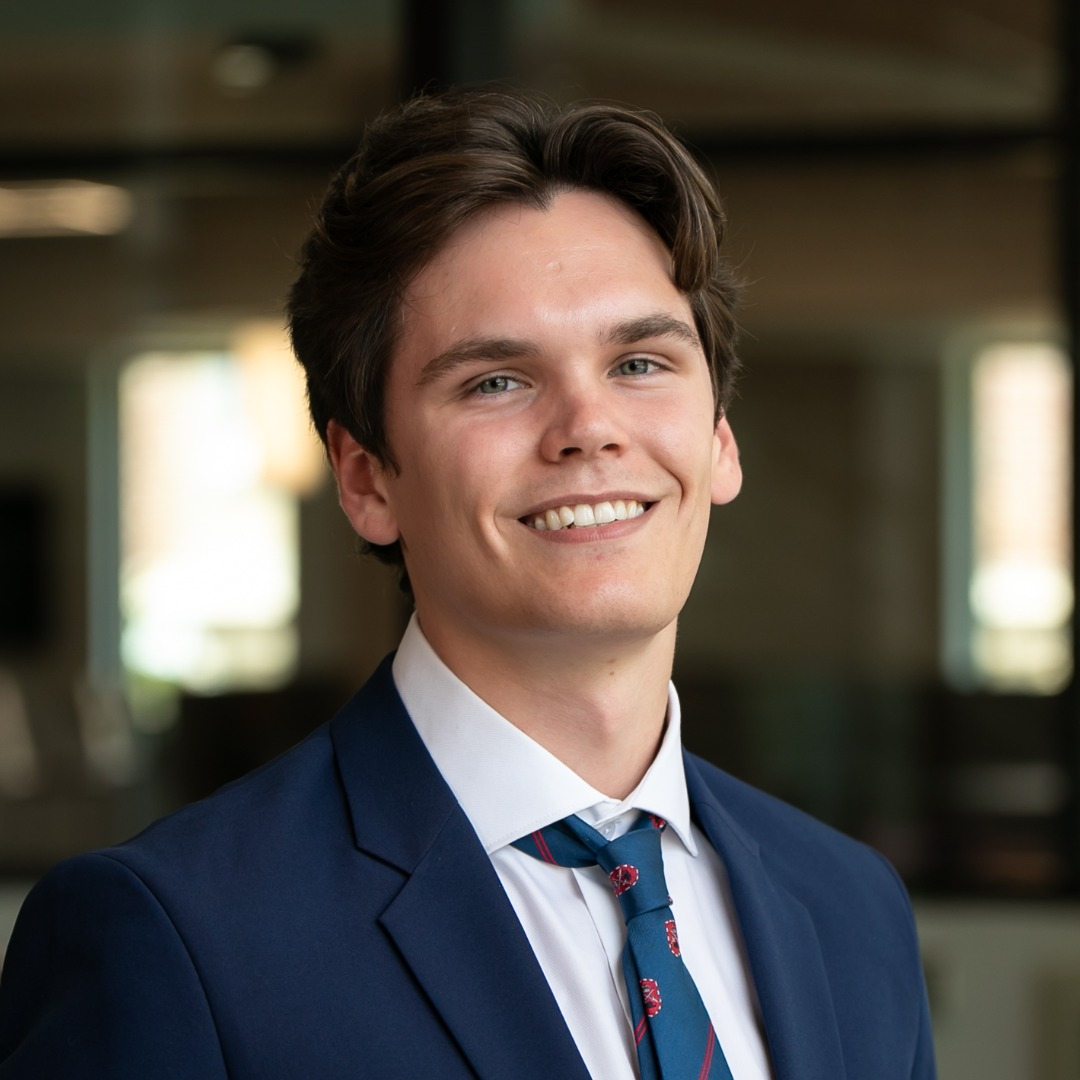
Recruitment Specialist
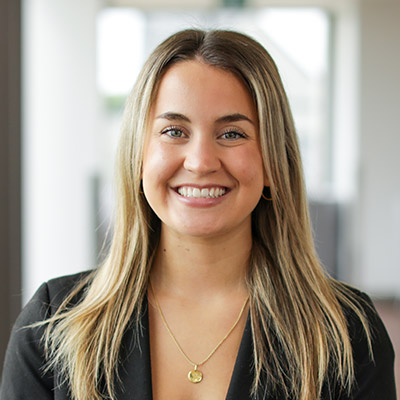
Recruitment Specialist

Recruitment Specialist, Türkiye
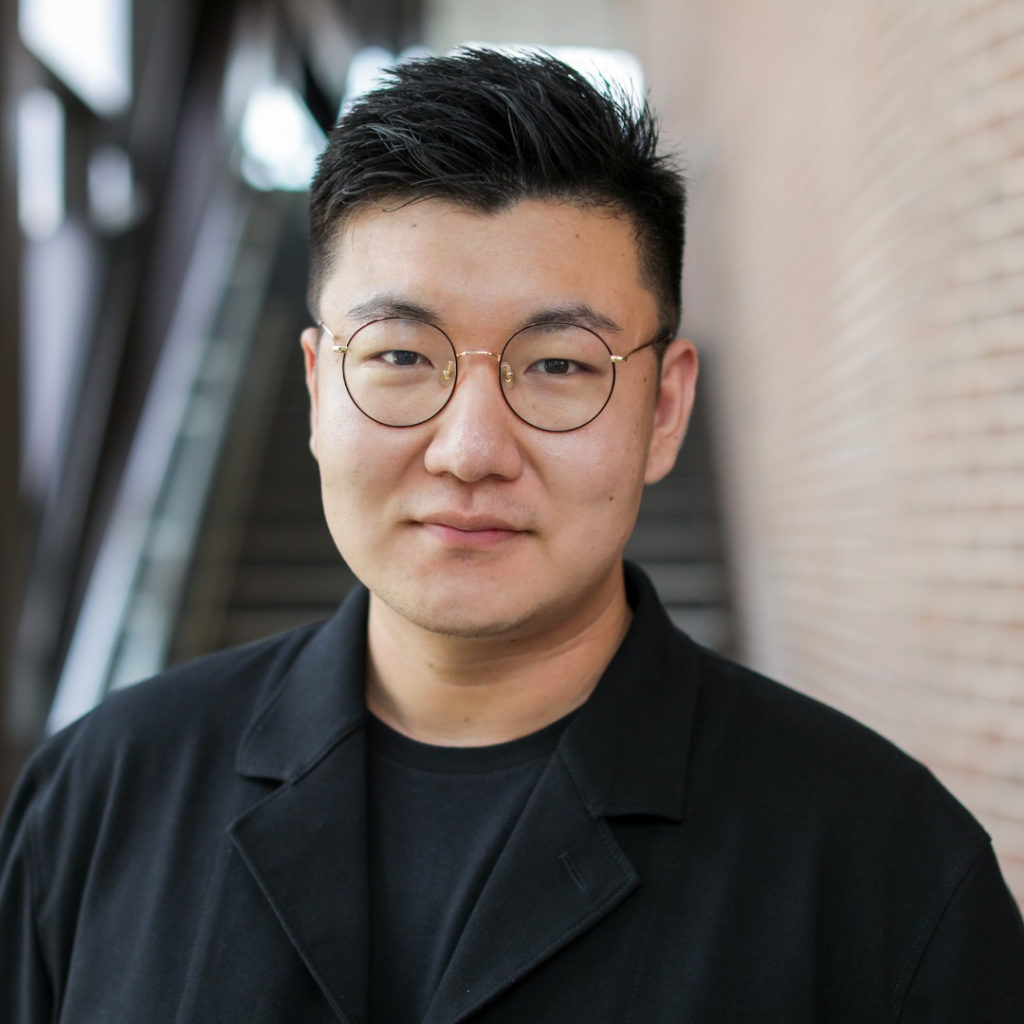
International Admissions Advisor,
East Asia
WeChat/微信: RayWuCanada
+86 130.5131.8782
Book a Zoom Call with me!
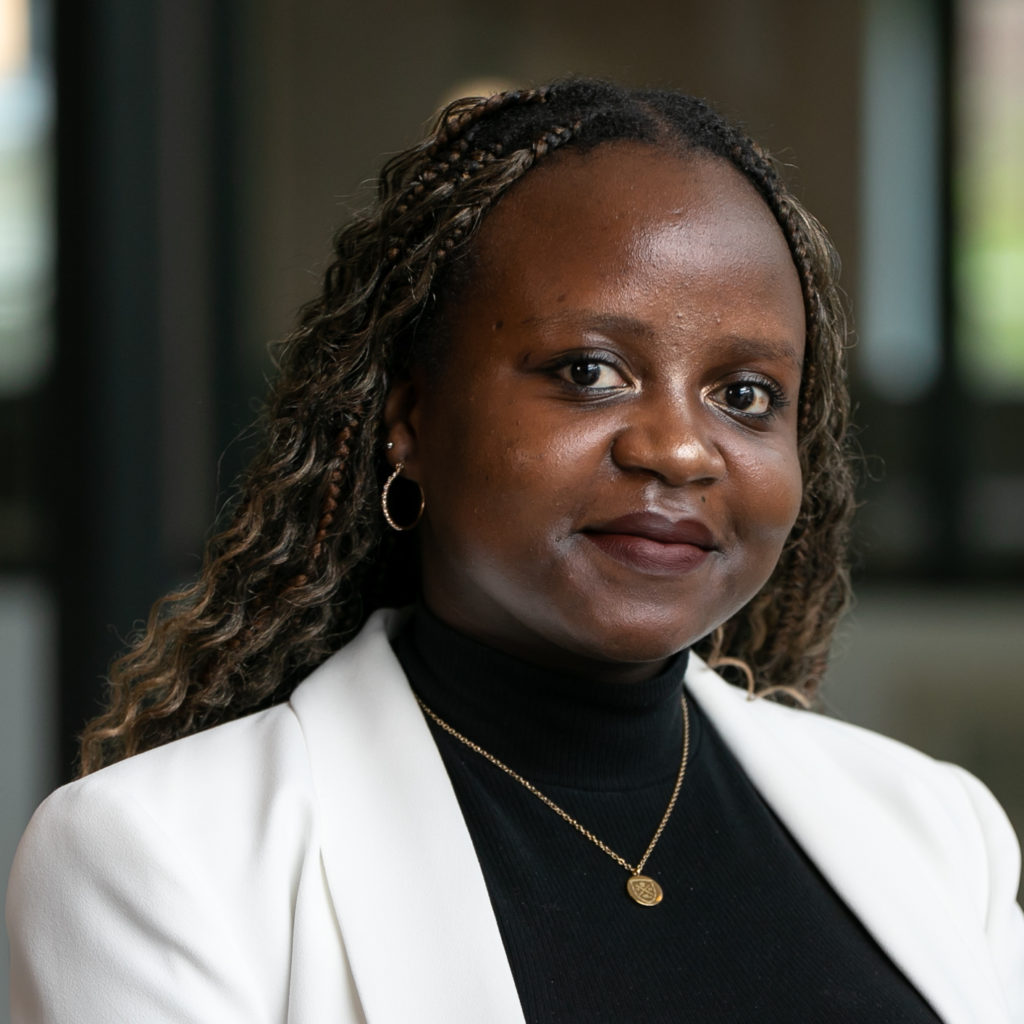
Coordinator, Recruitment Initiatives
elsie-marie.omondi@huron.uwo.ca
Book a Zoom Call with me!
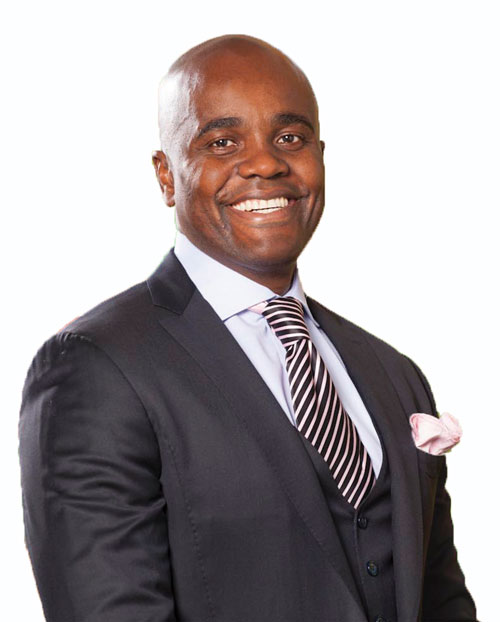 Wes Hall is the Founder and Chairman of Kingsdale Advisors, and The BlackNorth Initiative, and Canada’s first Black Dragon investor on CBC’s Dragons’ Den.
Wes Hall is the Founder and Chairman of Kingsdale Advisors, and The BlackNorth Initiative, and Canada’s first Black Dragon investor on CBC’s Dragons’ Den.
Born in rural Jamaica, Hall came to Canada at 16 escaping poverty and established himself as one of Canada’s most influential businesspeople and a leading anti-Black racism activist, committed to removing Anti-Black systemic barriers affecting millions of Black Canadians. As a member of Huron’s Board of Governors, he is looking to increase educational opportunities for Black youth.
“You can’t just look at corporate Canada to address our nation’s lack of inclusivity: our student population needs to mirror our country’s landscape equally as much,” he says. “The inclusion of underprivileged students and anti-racist education will not be a fringe part of our mission or curriculum.”
Hall’s anti-racism advocacy aligns with Huron’s vision of becoming a leader in diversity and authentic inclusion. He says he is looking forward to working with Huron to increase equitable access to education.
“When you look around the classroom and the boardroom, they both need to be diverse. Huron’s vision of inclusion is in line with everything I stand for,” he says. “I am excited about rolling up my sleeves to ensure people from all walks of life are part of this university’s prestigious ecosystem.”
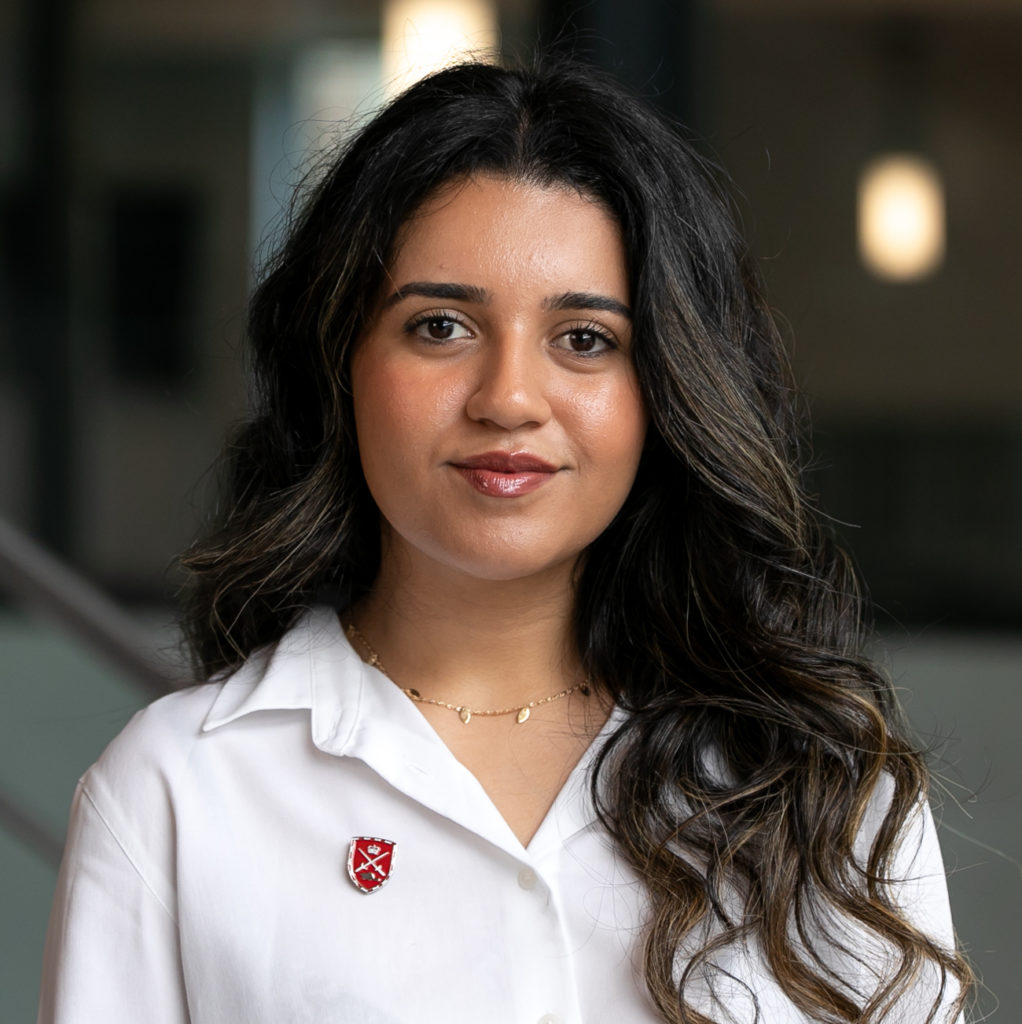
International Admissions Advisor, Africa & Europe
Email: zayn.nasser@huron.uwo.ca
Calendly: calendly.com/zaynnasser
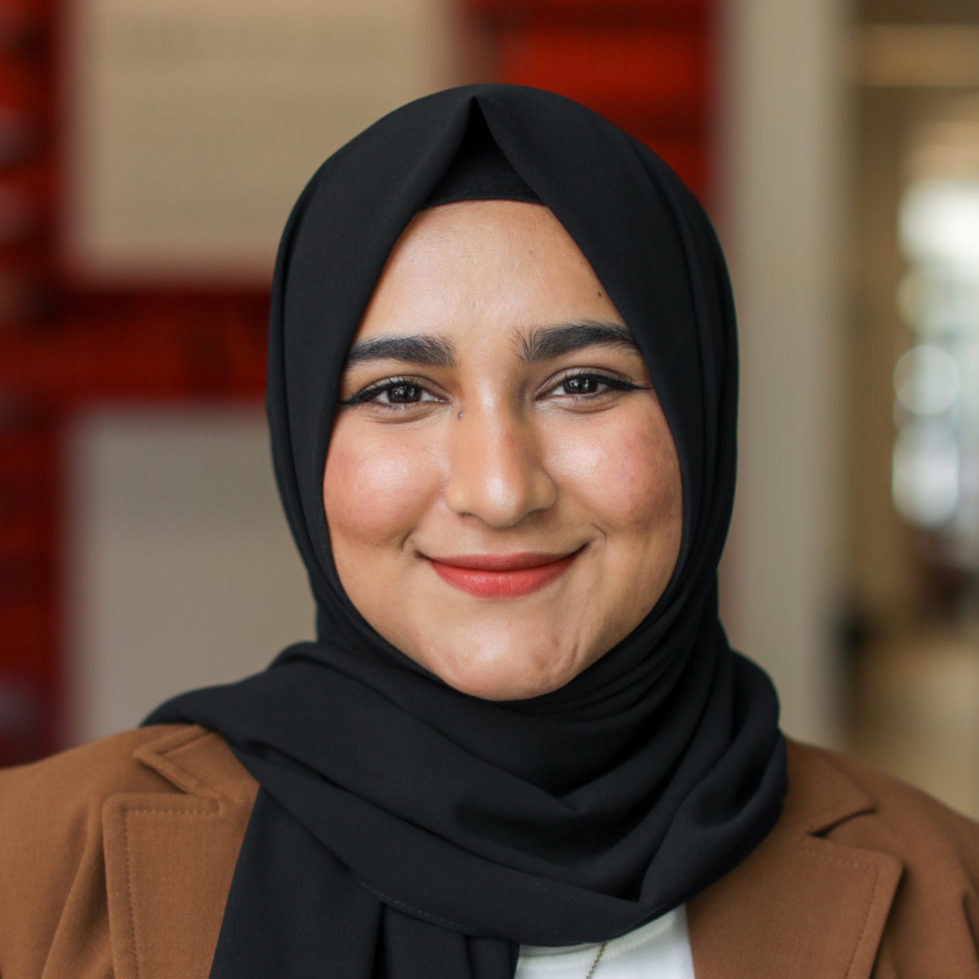
International Admissions Advisor,
South Asia
Book a Zoom Call with me!
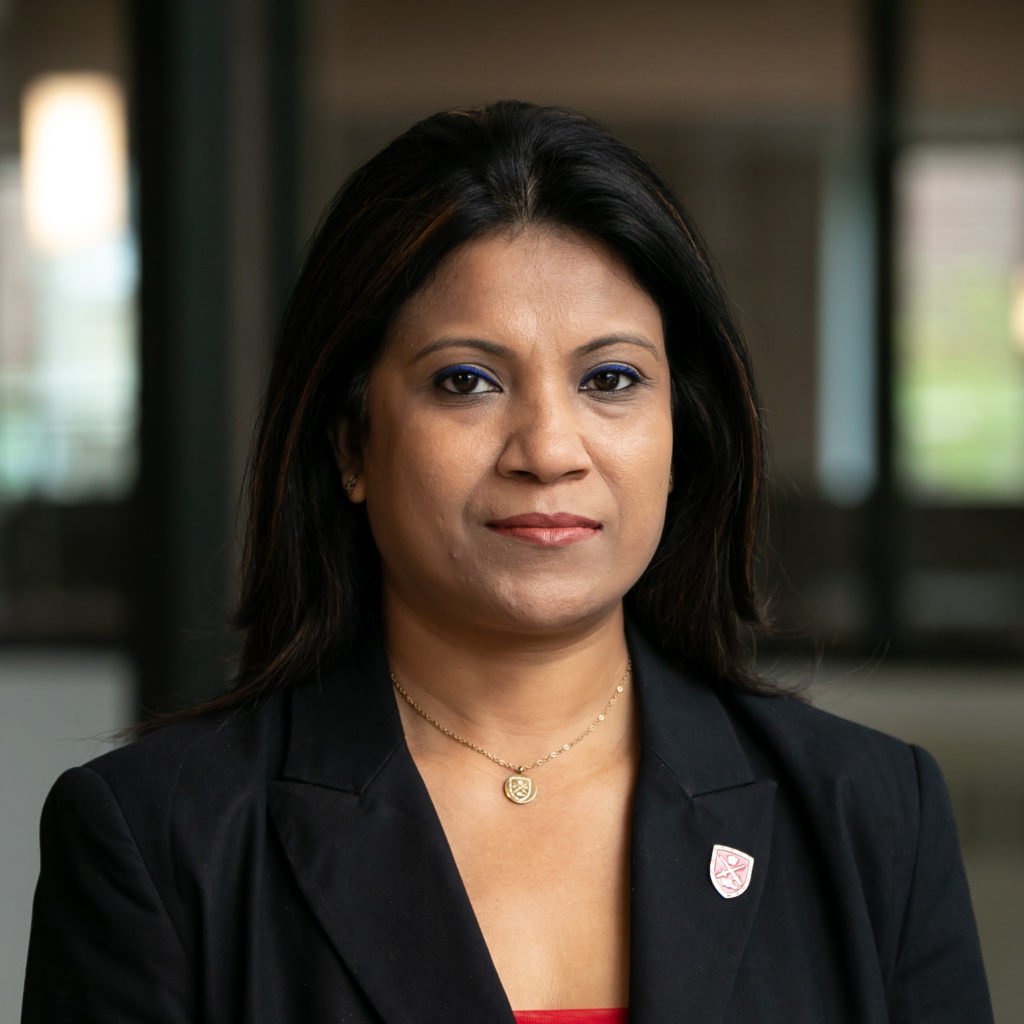
Senior Lead, Enrollment & Partner Relations
Book a Zoom Call with me!
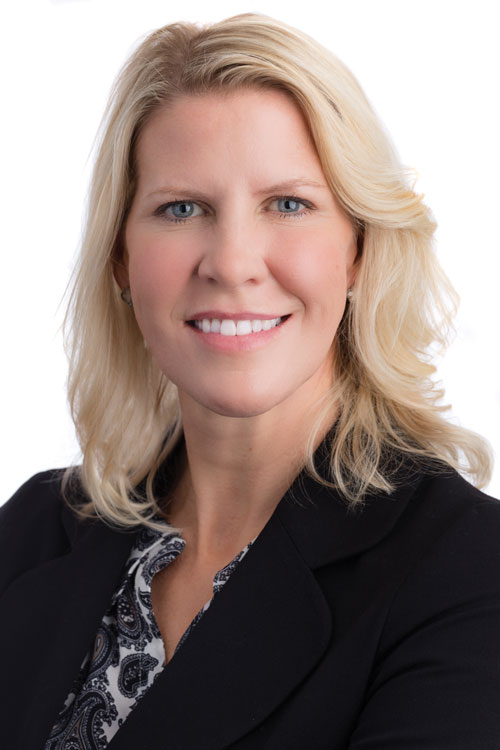 Leigh Allen is the AVP, Global Strategic Research, Reinsurance Group of America Inc., one of the world’s largest global life and reinsurance companies.
Leigh Allen is the AVP, Global Strategic Research, Reinsurance Group of America Inc., one of the world’s largest global life and reinsurance companies.
As a proud Huron ‘93 alumna, Allen says she was both thrilled and honoured when asked to join the Board. “I love the Leadership with Heart campaign,” she shares. “I’m excited to be part of this and will work to help Huron differentiate itself and become a destination for a Liberal Arts education in Canada.”
Allen graduated from Huron with a degree in Psychology. After having worked in consulting, at the United Nations and now the reinsurance industry, she says her Liberal Arts education has helped her in achieving these positions and opening doors.
“A Liberal Arts background gives you a bit more latitude to explore your personality and interests, strengths and dislikes – there’s a lot of opportunity,” she says. “There’s more appetite to go in different directions.”
Having also volunteered her time with the London Goodenough Association of Canada, which fosters alumni development and community relations, Allen is enthusiastic for her work on the Board of Governors. Huron, she says, is the perfect university in which to produce future leaders and change makers.
“We need to develop future generations to be broad thinkers and open to inclusivity,” she says. “I met a lot of people here who are amazing and I’ve kept those bonds and ties even when we’re in different countries.
“It’s unusual to have those relationships, a sense of community and belonging, but Huron fosters these with ease.”
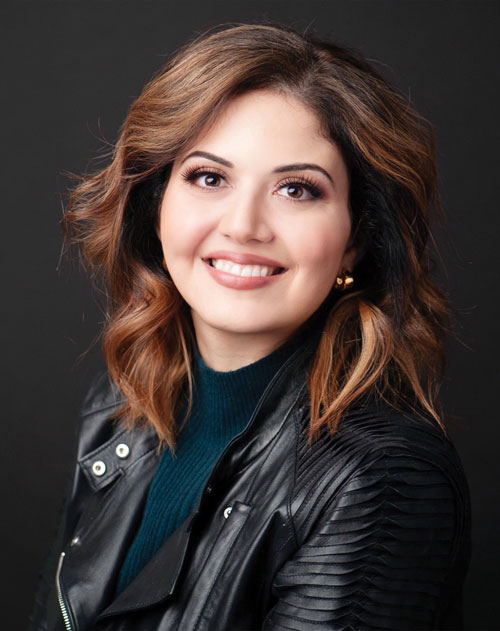 Yola Ventresca is a Managing Partner, Lerners LLP, Secretary of Huron’s Board of Governors and a Huron Class of ’02 alumni. Selected as one of Canada’s “Best Lawyers,” she is passionate about the value of Liberal Arts in helping students succeed in their careers.
Yola Ventresca is a Managing Partner, Lerners LLP, Secretary of Huron’s Board of Governors and a Huron Class of ’02 alumni. Selected as one of Canada’s “Best Lawyers,” she is passionate about the value of Liberal Arts in helping students succeed in their careers.
“Not only does it prepare you to be very successful within your profession, but this type of well-rounded programming forms you as a person,” she says. “People have lost this communal sense of what the Liberal Arts can offer, and I am going to support a change in that narrative in any way I can.”
Outside of law, Ventresca is committed to improving her community whether through volunteer work with community organizations or promoting the advancement of women in the legal profession. As a member of Huron’s Board of Governors, she says she is excited for the role she can personally play in shifting systemic inequalities and preparing students to positively influence others through empathetic and inclusive decision making.
“A Leader with Heart has an academic inclination, but they are also highly emotionally intelligent and compassionate towards people who differ from them,” she says. “As a lawyer, I see the importance of this type of leader every single day. I have a real desire to encourage people to recognize the value of that flexibility in thought and critical capacity that allows my colleagues to really engage with people from all walks of life.”
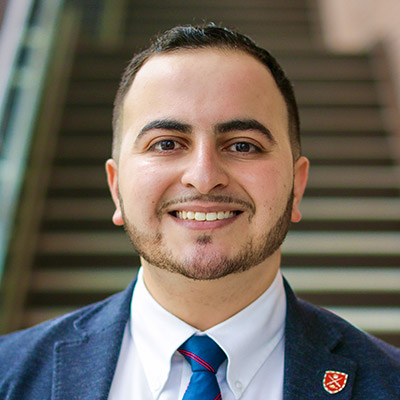
Director, International Recruitment
Book a Zoom Call with me!
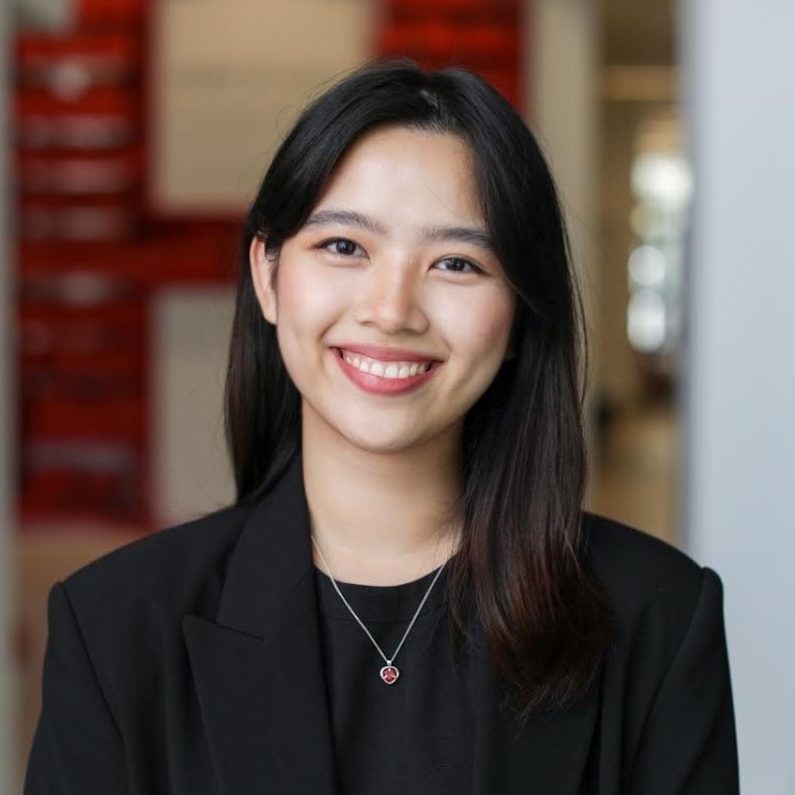
International Admissions Advisor,
South East Asia
Book a Zoom Call with me!
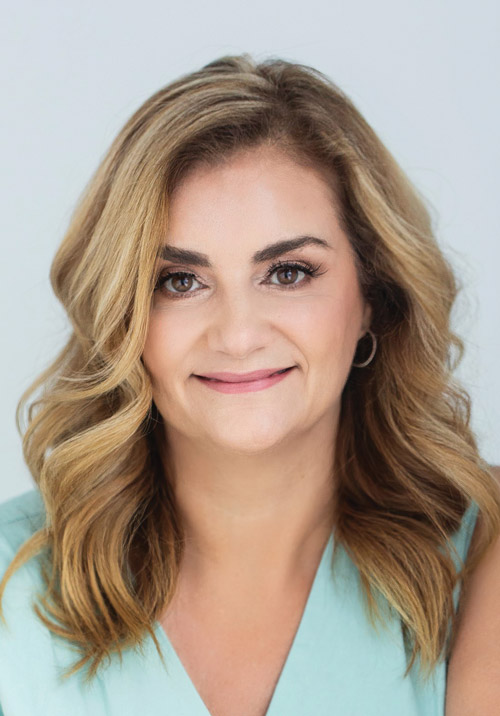 Lisa Jones Keenan is the Vice President of Sales at Xplornet Communications, the largest rural fixed wireless broadband service provider in Canada.
Lisa Jones Keenan is the Vice President of Sales at Xplornet Communications, the largest rural fixed wireless broadband service provider in Canada.
In her work, Jones Keenan is known for fostering positive company cultures and productivity. She credits transferrable skills for her ability to move into roles she may not have otherwise considered. With the ever-evolving demands of the modern economy, ensuring young people can similarly adapt within new industries is one of the reasons Jones Keenan joined Huron’s Board of Governors.
“It might be presumptuous to say that a university has a social and moral prerogative to develop well-rounded, well-intentioned people,” Jones Keenan states. “But, at Huron you don’t have to suggest it – the university’s sense of obligation to form people who will benefit humanity is built into everything Leadership does.”
Jones Keenan has kept leadership development at the forefront of her career. When talking about the immediate need for an education that develops people skills and leadership potential, she emphasizes how Huron’s unique model of teaching can transform our future economy.
“So much of what I do focuses on coaching people who are already well-established in their careers yet still need that encouragement to be compassionate and empathetic in the office,” Jones Keenan shares. “To be able to start that learning in post-secondary school will not only be such a benefit to our students, but to the business world more broadly.”
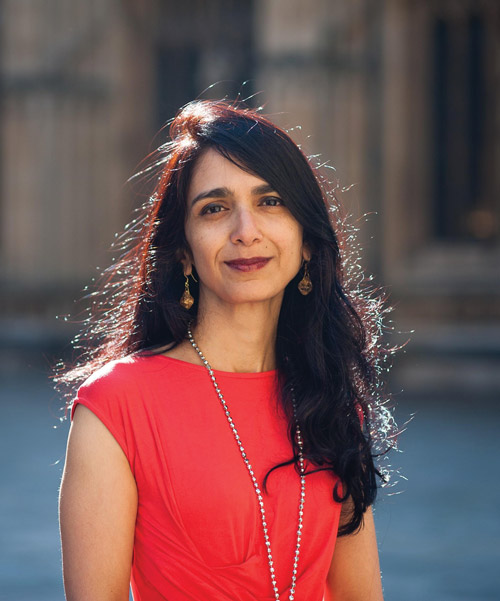 Ranjita is Executive Chair of the Oxford Global Partnership, advising investors, businesses, family offices and entrepreneurs on sustainable, inclusive and responsible value creation. A Business Fellow at Oxford University’s Smith School, Ranjita engages with companies on pursuing value with values, and teaches a postgraduate “Essentials of ESG & DEI” course.
Ranjita is Executive Chair of the Oxford Global Partnership, advising investors, businesses, family offices and entrepreneurs on sustainable, inclusive and responsible value creation. A Business Fellow at Oxford University’s Smith School, Ranjita engages with companies on pursuing value with values, and teaches a postgraduate “Essentials of ESG & DEI” course.
Rajan’s passion and professional raison d’être is supporting and shaping imaginative organizations and businesses as exemplars of outstanding value creation, responsible governance and equitable, inclusive net-zero sustainable development (“NZSD”). Over a decade at McKinsey & Co, Rajan advised public, private and family-owned businesses in retail, telecoms, energy, mining, banking, finance on value creation. She was a founding member of McKinsey’s Climate Change Special Initiative, today its Sustainability Practice. Rajan started her career as a macroeconomist in Africa and Asia, negotiating financing for structural adjustment and sustainable development projects and laying the foundations for NZSD as a non-negotiable.
Rajan is also Founder of the Karta Initiative, a global social mobility movement, building technology, finance, and networks to bridge the divide between ‘base of pyramid’ youth and world leading universities and employers in Canada, India and the UK.
Rajan’s passion for inclusive prosperity comes from a childhood spent in rural, remote Liberia where she witnessed how accident of birth is a key driver of life outcomes. Here, she saw firsthand how the basic necessities, such as running water and electricity, are markers of privilege for many people. At the same time, Rajan says “even a tiny drop of opportunity and access to education or training” can make a tremendous difference to nurture potential and improve equality of outcomes.
“In the early days of Karta, we reached out to Canadian universities to explore their interest in international inclusion, and I was introduced to Barry. It did not take long to realize we were totally, utterly mission aligned,” she says. “What we wanted – and are both still working hard to achieve – is the removal of barriers to opportunity so a more representative group of young people can excel and thrive in world class environments.”
As a member of Huron’s Board, Rajan is excited to support Huron as a world class university, globally celebrated for its world class education and advancement of inclusive prosperity, social mobility, and equitable NZSD.
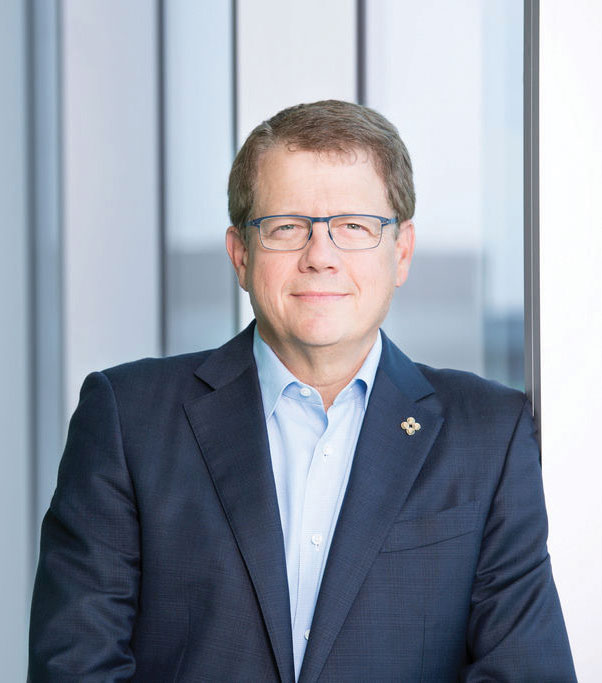 Michael Medline is the President and CEO of Empire Company Limited and Sobeys Inc., a leading Canadian grocery retailer with grocery and ecommerce brands that reach across Canada, including Sobeys, Safeway, IGA, FreshCo, Foodland, Thrifty Foods, Farm Boy, Longo’s and Voilà.
Michael Medline is the President and CEO of Empire Company Limited and Sobeys Inc., a leading Canadian grocery retailer with grocery and ecommerce brands that reach across Canada, including Sobeys, Safeway, IGA, FreshCo, Foodland, Thrifty Foods, Farm Boy, Longo’s and Voilà.
Medline is a Huron Class of ’84 Alumnus. In 2021, Medline returned to Huron as a member of the Board of Governors in order to “contribute to a school and part of his life that means so much to him.” A passionate advocate for the Liberal Arts, Medline is focused on supporting Huron to “take the Liberal Arts experience to another level.”
As the CEO of one of Canada’s largest and longest-running food retailers, Medline understands what it takes to attain success by combining profitability and a values-based approach to business. He attributes a part of his career success to Huron, saying Liberal Arts can “springboard” students to pursue their passions across countless fields.
“I strongly believe in the value of the Liberal Arts. What you learn is how to communicate, ingest and synthesize a large amount of information,” he says. “The ability to think critically and innovatively have been integral to my business career and our students will benefit immensely from learning to adapt, embrace change and follow their passions.”
As part of Huron’s Board of Governors, Medline hopes to build on the university’s vision to develop students through a strong educational foundation, a belief in the common good and a commitment to civic engagement.
“When I went there, I absolutely loved everything about Huron,” he says. “The institution is definitely getting better every single year. It’s an amazing place to get an education.”
Beyond his business accomplishments, Medline is active in the community. He serves as a member of the Board of the SickKids Foundation and is currently Chair of the Grocery Foundation. He holds an MBA from Raymond A. Mason School of Business, William & Mary; an LL.B. from the University of Toronto, and, of course, a BA from Huron University College at Western University. Medline also proudly received an Honorary Doctor of Divinity from Huron College in 2020.
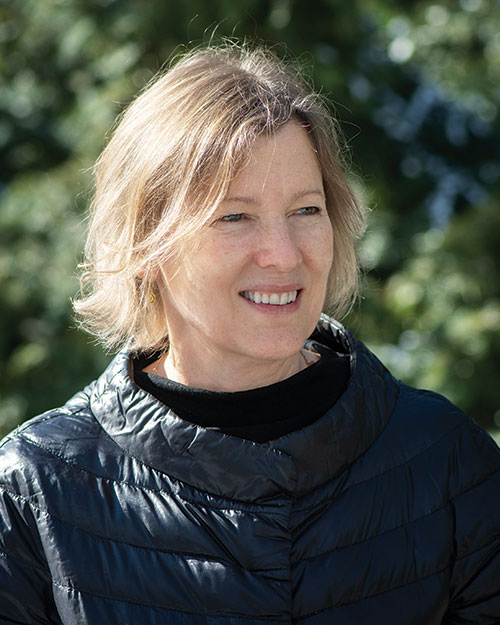 Susan Farrow is an Assistant Professor in The Temerty Faculty of Medicine at the University of Toronto and a Founding Partner and Co-Director of The Toronto Institute of Group Studies, an organization offering certified training and education in group leadership.
Susan Farrow is an Assistant Professor in The Temerty Faculty of Medicine at the University of Toronto and a Founding Partner and Co-Director of The Toronto Institute of Group Studies, an organization offering certified training and education in group leadership.
“Our public education systems have recently been more focused on STEM subjects (science, technology, engineering, and math), which are extremely important,” says the Huron ’85 alumni. “However, we cannot lose the significant value of the humanities – the subjects that truly help educate us to communicate, better understand each other, and be caring and decent human beings.”
Farrow has been a committed clinician and educator throughout her career, with expertise in mental health and psychotherapy. High on her list of priorities as a member of the Board of Governors will be to ensure there is a real focus on the student experience, and their wellbeing, particularly with respect to mental health.
Saying she was “honoured” to be asked to join the Board, Farrow notes she was already avidly watching Huron’s commitment to creating Leaders with Heart. “This focus on developing and giving back to our communities is essential for us to make both the local and global changes that are so necessary to our world today,” she says.
Farrow remembers her Huron experience as “an amazing learning environment” and hopes to give back to Huron to express her gratitude for the incredibly positive impact Huron has had on her life.
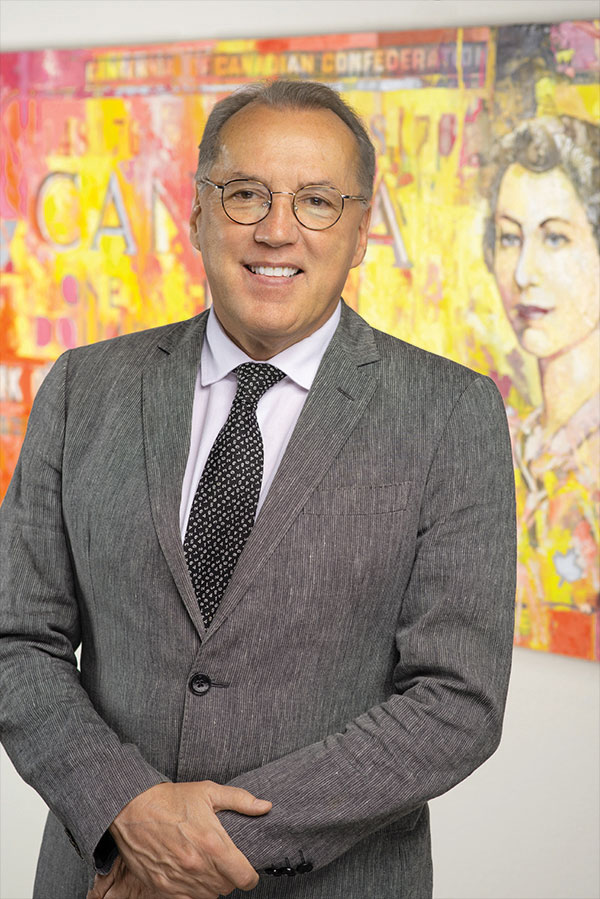 Frank Holmes is CEO and Chief Investment Officer of U.S. Global Investors, as well as a business commentator, philanthropist and Huron Class of ‘78 alumnus. Holmes also serves as the Executive Chairman of HIVE Blockchain Technologies, the first cryptocurrency mining company to go public in 2017.
Frank Holmes is CEO and Chief Investment Officer of U.S. Global Investors, as well as a business commentator, philanthropist and Huron Class of ‘78 alumnus. Holmes also serves as the Executive Chairman of HIVE Blockchain Technologies, the first cryptocurrency mining company to go public in 2017.
Born in Toronto, ON, Holmes says he was exposed to many different cultures and socio-economic backgrounds as a child. As a result, he says he developed a determination to leverage the capacity he built through U.S. Global Investors to invest in charities that give underserved kids a leg up.
“My goals have always been to create economic growth and a better well-being for the communities I work within,” he says. “I have always believed in giving back and, as you become more readily able to do so, you should recognize your obligation to invest in the people and spaces around you.
“That giving mentality has to go hand-in-hand with prosperity.”
In recent years, Holmes has reconnected with Huron, intrigued both by the school’s academic offerings and its commitment to civic engagement. His forward-looking vision aligns well with the university’s commitment to innovating and strengthening itself as an international leader with the same growth mindset it will foster within its students.
“Good leaders have a growth mindset,” he says. “They are not forced into learning, but instead are naturally curious and excited about taking the initiative to challenge their own preconceived notions. Huron is nurturing a new generation of students who are inspired to be transparent and accountable. Not only do they have drive, but their high achievement is underlined by a willingness to disrupt the status quo and give back.
“Who wouldn’t get excited about that?”
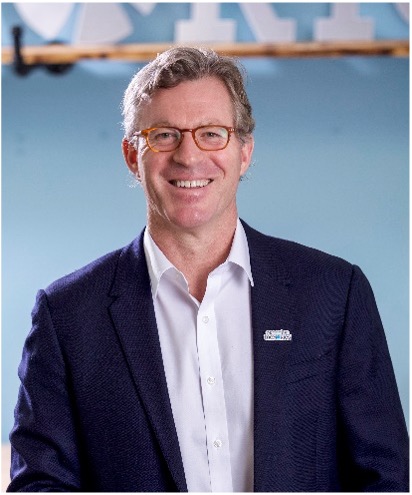 Caleb Hayhoe is the Founder & Chairman of Flowerdale Group and a Huron Class of ’85 Alumnus. Flowerdale Group is a Hong Kong based family office with a global investment outlook across public markets, real estate and private investment. Hayhoe previously spent over ten years building a global sourcing business together with an exceptional team, and remains committed to entrepreneurialism and helping great ideas become sustainable companies.
Caleb Hayhoe is the Founder & Chairman of Flowerdale Group and a Huron Class of ’85 Alumnus. Flowerdale Group is a Hong Kong based family office with a global investment outlook across public markets, real estate and private investment. Hayhoe previously spent over ten years building a global sourcing business together with an exceptional team, and remains committed to entrepreneurialism and helping great ideas become sustainable companies.
Hayhoe prioritizes character above all else when looking at who and what to invest in. “I have hired hundreds of people, and what I always look for is how people do things,” Hayhoe says. “As the world becomes increasingly globalized, businesses have access to countless intelligent, qualified people. However, cultural capital is what really counts: you need to be willing to learn, work well with people from diverse backgrounds and accept ideas that starkly differ from your own.”
Hayhoe, who currently lives in London, UK, remains an avid believer in the value of a Liberal Arts education. As a member of Huron’s Board of Governors, he hopes to reaffirm and support the responsibility of educational institutions to develop graduates who have integrity and who recognize the importance of balancing financial success with social responsibility.
He looks forward to working with Huron’s Board of Governors to create a legacy at Huron that stands for the core fundamental values of treating people with dignity and respect and acting in the best interests of society.
“I am excited about the opportunity to help my alma mater become an even more representative and dynamic school that emphasizes integrity, celebrates uniqueness and never loses that sense of home it had when I attended,” he says.
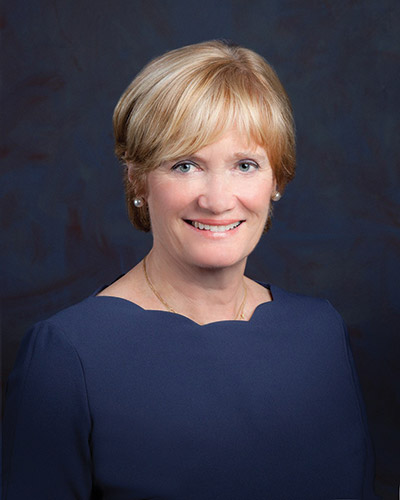 Kelly Meighen is an experienced philanthropist and volunteer. In her role as president of the T.R. Meighen Family Foundation, she has created a legacy of volunteerism and philanthropic giving in the areas of youth mental health advocacy, environmental conservation and cultural vibrancy.
Kelly Meighen is an experienced philanthropist and volunteer. In her role as president of the T.R. Meighen Family Foundation, she has created a legacy of volunteerism and philanthropic giving in the areas of youth mental health advocacy, environmental conservation and cultural vibrancy.
A Huron Class of ’71 alumnus, Meighen also holds an honorary Doctor of Divinity from Huron, conferred to her on the 156th Founder’s Day. She is putting strategic planning and governance skills to work as part of Huron’s Board of Governors to help amplify the school’s as an elite Liberal Arts institution with an inclusive environment designed to welcome people from all backgrounds.
“Huron’s advantages have always been obvious to the people who appreciate that kind of an environment,” she says. “My hope is that our Board can help broadly share the vision of the school as I cannot imagine how it would not resonate with a very broad and enthusiastic audience.”
Meighen says Huron’s emphasis on personalized support, equitable opportunity and community integration has never been so important.
“Now, we just need to ensure our message reaches everyone who recognizes the mutual benefit of intellectual pursuit and personal development,” she says. “Huron’s intention to deliver an education that prioritizes the student as an individual while fostering their role within society will no doubt benefit both learners and their communities alike.”

International Admissions Advisor,
Latin America & Caribbean
Book a Zoom Call with me!
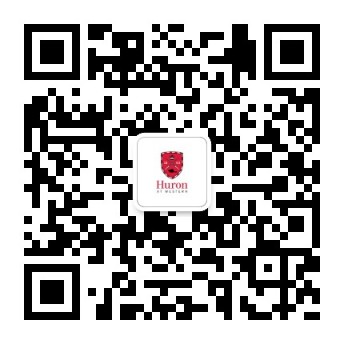
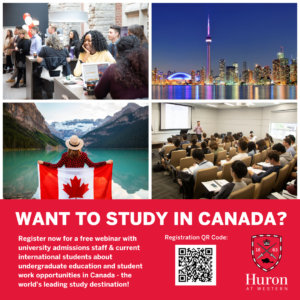
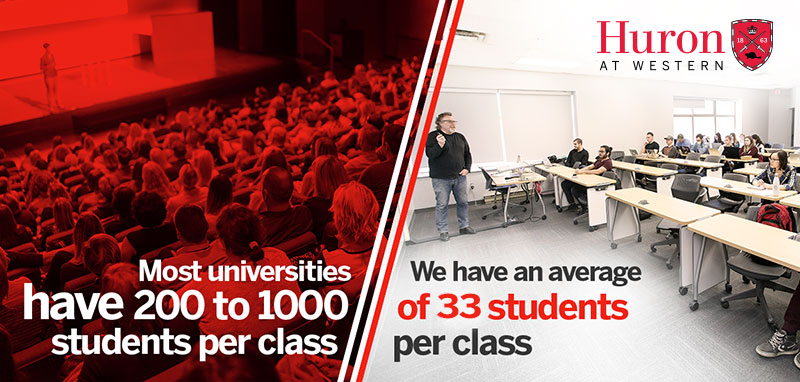
The Huron Experience is truly one-of-a-kind. While most universities take in thousands of students every year, Huron selectively limits our annual incoming cohort to around 500 students each year. Even though we keep our community strategically small, we ensure they are truly representative of our global community, and we welcome exceptional young leaders from dozens of countries all over the world to our campus each year. This means, the average number of students in your classes will be 33 rather than 300, 500 or 800 like most other undergraduate programs. Plus, our student to faculty ratio is only 11:1. For us, the quality of your experience will always be more important than merely increasingly the quantity of our students.
Most undergraduate learning environments in Canada involve sitting in a lecture hall with hundreds of students, watching slideshows and memorizing textbooks. Huron classes are different. Here, professors will mentor you, not lecture you. You will engage with the course materials through interaction and debate with your peers and learn in the real-world through capstone projects, high-level research unique on the undergraduate level, as well as through real-life learning experiences throughout Canada and around the world.
Why do we do this? Because it’s all about you. At Huron, you can expect a premium undergraduate experience. Our staff and faculty will know your name, not just your student number. We will know your story and are personally invested in making sure you achieve your goals and maximize your potential.


Huron’s alumni network includes world-renowned leaders, in every industry, who you can learn from, network with and emulate. Huron alumni live in 59 countries worldwide and Lead with Heart in business, government, technology, law, international affairs and more.
With a graduating class of 400 students rather than 4,000, it’s possible to connect each and every student with an alumni mentor who will be personally invested in your success and can directly connect you to career opportunities where they work. This can make the difference between starting out in an entry level position and attaining a distinguished career.
Plus, you’ll never have to search for mentorship or a job alone. You will have one-on-one guidance from your Career Development Team who works hard solely to provide our talented students with alumni mentors working in the field or organization of your dreams.
How do Huron’s distinct advantages develop exceptional alumni? Our campus, which has the resources to nurture individual gifts, creates an environment where you’re strongly encouraged to show up and speak out. Within our interactive classrooms, there’s no sitting back and passively taking in information. Instead, you learn presentation, debate and the kind of human and leadership skills that will be most in demand in a world of ever-increasing automation and artificial intelligence.
Huron – Harvard Collaboration
Our university promises to deliver on an education that is as prestigious as it is principled, and part of that commitment involves our collaboration with the world’s highest calibre of institutions. When you choose Huron, you gain access to partnership opportunities at the world-renowned Harvard University.
Huron is the only Ontario university to supplement the development of your head and heart with a Harvard certificate
Harvard Business School Online (Harvard) provides students, in any Huron program, with a chance to gain the fundamentals of business thinking. The online Credential of Readiness (CORe) program will enable Huron students to contribute to business discussions and decision-making, whether you’re looking to advance your career, considering graduate school, or narrowing down the career path best suited to your potential.
This Ivy League badge of honour is the perfect supplement to a well-rounded Liberal Arts degree and will ensure future employers recognize your dedication to business best practices, as well as accountable leadership.
Huron – Ivey Dual Degree Programs
The Ivey Business School is Canada’s first and most prestigious business school. Complete your first two years at Huron and apply to Ivey’s Honours Business Administration (HBA) program. Students can also apply for Advanced Entry Opportunity (AEO) conditional, pre-admission status to the HBA program from secondary school
Because of our small classes, one-on-one faculty mentorship and opportunities to build leadership skills through internships, volunteering, community-based learning and travel study, Huron students can keep their grades high and build impressive extracurricular portfolios — all of which are vital to acceptance at
Paid Internships: At Huron, every single student is guaranteed a paid internship, so you will get to connect your learning with workplace experience and earn while you learn.
Entry-level work positions no longer require entry-level experience. To secure a job right after graduation, you need to show employers you’re capable of contributing significant value to your workplace.
At Huron’s Career Development Centre, you will work one-on-one with your advisor to find the right fit for your paid internship. Your personal Career Development team member will help connect you with a position that sparks your curiosity and nurtures your interests, while providing you with experiences to add to your resume. Huron has an extensive group of esteemed alumni who are leading industries, around the world, and are eager to give back by providing our students with internship and career opportunities. This, along with our strategically selective campus, means you’re not competing with hundreds of students for internship positions, so Huron students always have a better chance to secure a meaningful experience.
WealthSimple (Toronto, ON) | United Nations (Geneva, Switzerland) | London Economic Development Corporation (London, ON) | Agha Khan University Hospital Foundation (Nairobi, Kenya) | 3M Canada (London, ON) | Deloitte (Toronto, ON) | Ernst & Young (London, ON) | KPMG (Toronto, ON) | HSBC Bank (London, UK) | Clearbit (San Francisco, USA) | Government of Canada (Ottawa) | Bank of Montreal (Toronto, ON)
Our Leaders with Heart learn better and do more because we ensure our resources are never spread thin across our student body. Our strategically sized university means not only will you establish meaningful relationships with your professors, but our administration and staff are also readily available to enrich your time here. We never overcrowd our programs because we believe in providing a transformative education, not churning out degrees.
From the moment you begin your application and throughout all four years, we will work with you to ensure you’re thriving. At Huron we don’t have long lines and wait times, individualized one-on-one support from our staff and advisors is available on-demand. With one professor per 11 students and the same number of wellness, professional development and international support staff members as many large universities, you can feel confident you will always have people, who genuinely care about you, in your corner.
Who are some of the people who contribute to Huron’s Culture of Care?
Our Admissions team, who will work side-by-side with you and your family as you begin to apply, to provide personalized program recommendations and assistance with every step of the application & scholarship process
Our President who gives out his personal cell phone number, is consistently a presence at student events and responds to your emails within 48 hours, 7 days a week.
World-renowned faculty who are celebrated academics, researchers and educators and are always available to meet with you individually outside of class time
Student Advisors who will always be available 1-on-1 to help you with any of your academic, wellness and professional development needs
At Huron you will never have to go through any red tape. You will always have direct access to the support you need – unlike at large institutions where you may need to wait weeks to address your needs.